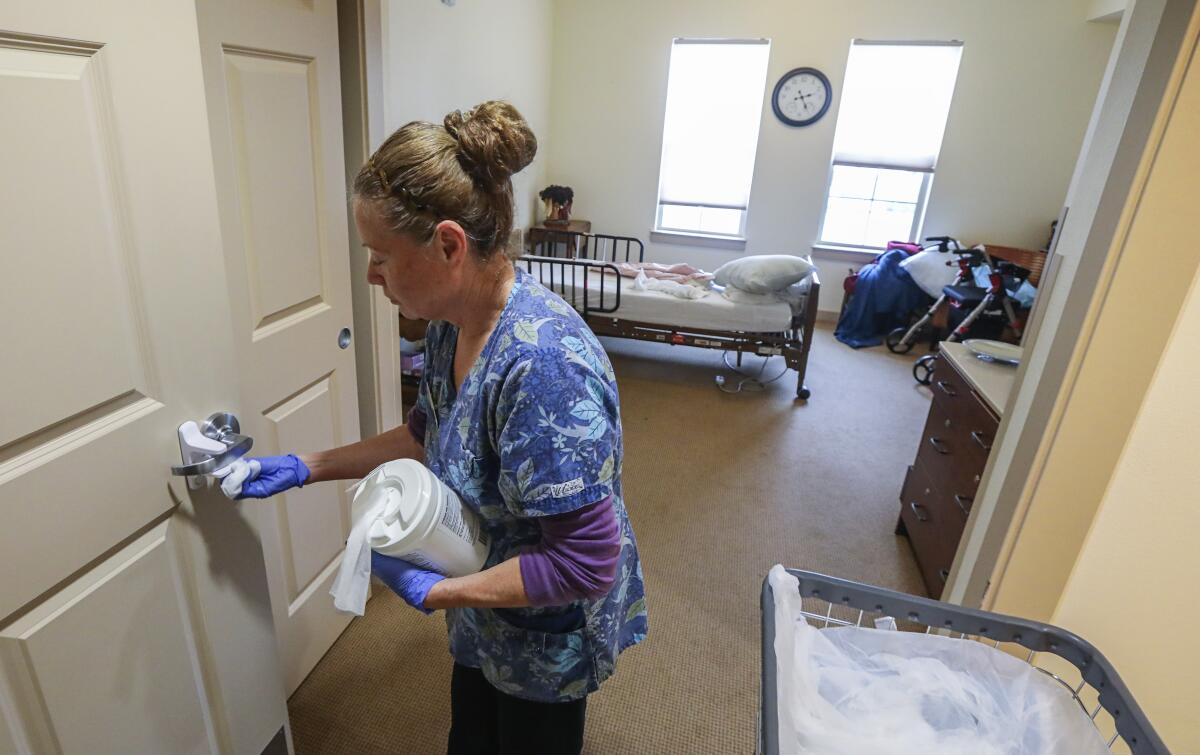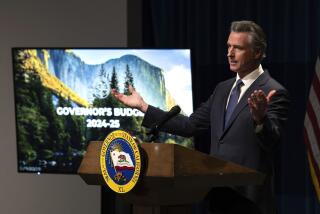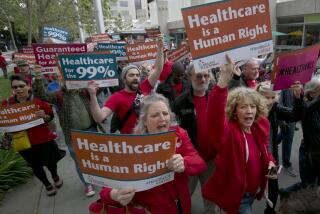California lawmakers approve $1 billion in funding and legislative hiatus due to coronavirus

California lawmakers approved a plan Monday to spend as much as $1 billion on the state’s emergency medical response as it readies hospitals to combat an expected onslaught of patients due to the novel coronavirus pandemic.
The proposals, drafted quickly in response to the rapid rise in confirmed cases of the virus, will provide needed funding to open two additional hospitals in California amid concern that the state does not have the capacity to care for a surge in patients. The bill appropriates $500 million for emergency response from the state’s general fund with an additional $500 million available if needed.
Newsom wrote to lawmakers on Monday that elected officials “must rise to the challenge facing our state with every tool at our disposal and without a second of delay.”
The governor was expected to quickly sign the coronavirus proposals into law. The bills, which passed the state Senate and Assembly on a bipartisan vote, were the only actions taken before the two houses announced a suspension of legislative business until April 13, unless lawmakers decide public health conditions allow them to return to Sacramento earlier.
With legislative approval of the spending plan, the Newsom administration has the power to quickly ramp up the state’s efforts. The governor said on Sunday that the state is working to open new hospitals to meet the needs of a state grappling with how to slow the spread of COVID-19.
“We have already identified some very large hospitals that we can bring online that currently are not operational,” he told reporters.
Following fears the state has an inadequate supply of medical equipment, the money will be used to purchase additional ventilators, masks and protective gear. In addition, the state will use the money to help nursing homes, childcare facilities needing deep cleaning and to aid seniors who have been asked to practice home isolation.
The new spending approved unanimously in the Assembly and Senate on Monday will also be used to provide hotel beds to those experiencing homelessness in order to reduce the spread of COVID-19 among the unsheltered.
The continued efforts to ramp up response to the fast-moving disease comes as coronavirus cases in California are rising daily, with 11 deaths and 392 confirmed cases in the state as of Monday night. Public health officials in six San Francisco Bay Area counties, a hotspot for confirmed coronavirus cases, announced a shelter-in-place order on Monday that will close businesses and keep residents indoors.
In Los Angeles, bars, nightclubs, movie theaters and gyms have closed and restaurants have limited their business to takeout orders until March 31, following an order from Mayor Eric Garcetti.
State and federal officials have said preparing the healthcare system is vital, particularly given the public breakdown in Italy, where hospitals do not have the beds, equipment or workers to care for so many sick people.
“Right now is the time when we need to step up,” said state Sen. Brian Dahle (R-Bieber). “We really don’t know the impact of what the future will hold, but we do know maybe we can flatten that curve out and stop what we are seeing in Italy and other countries.”
The spending plan also seeks to provide assurances to schools that funding will continue despite coronavirus-related closures. State officials estimate schools serving as many as 85% of California’s public education students have been closed over the last week.
Newsom’s executive order on Friday paved the way for ensuring schools are not penalized under the “average daily attendance” formula that links funding to how many students are on campus on any given day.
Most legislation cannot be introduced and given final passage in a single day under a constitutional amendment that voters approved in 2016 that requires a 72-hour public review of all bills. But that law offers an exemption in times of public emergency and the two coronavirus-related bills mark the first time that provision has been invoked.
More to Read
Start your day right
Sign up for Essential California for news, features and recommendations from the L.A. Times and beyond in your inbox six days a week.
You may occasionally receive promotional content from the Los Angeles Times.








